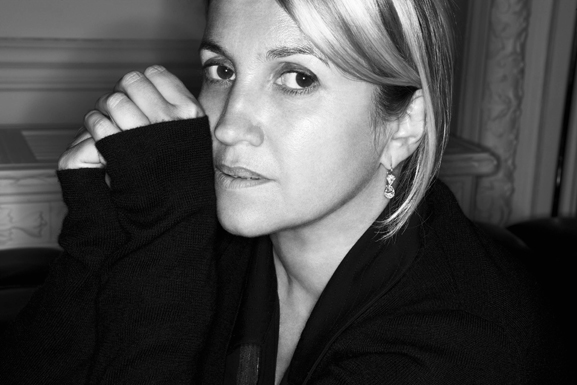Q&A With Silvia Fendi
Art and Living: You’ve been immersed in creativity and fashion since birth. What was it like being born into the Fendi name?
Silvia Fendi: Growing up watching my mother sew clothes, it felt totally normal for me to continue what she was doing. It is a path I follow without thinking; it’s very natural. Today, I want to continue with the same passion that my mother put into it for so many years.
AL: Who has given you the most helpful career advice? What would you tell emerging talent that you wish you had known starting out?
SF: I just say that you have to be patient and work with a lot of passion. Sometimes you’ll feel like “my god, nobody is going to understand what I’m doing!” but one day you will find people who understand what is in your mind and they truly appreciate it.
AL: What was that defining moment for you?
SF: The moment is when you see your designs on everyday people. It’s the best award you can have. You are proud that you’ve reached somebody. Of course, it feels good to see your things in magazines or get a good review from the press, but these people are “fashion people.” What I like is to reach normal people. It’s very exciting.

SF: Well, it is not a rule to have an “it” bag. I simply like new challenges. I like to do what other people don’t do. I try not to follow the market, not to follow competitors—just to do something really different that others are maybe scared of. For instance, when I did the Baguette, everyone at that time wanted to have a very functional, very big backpack. So the Baguette was something totally different. Then, around the time of the Spy bag, everyone was copying the Baguette, so I made a vintage leather bag but totally different. So normally, I just really try not to follow the others.
AL: From interpretations of a ’51 Jaguar and Abici bicycles, there is a sense of nostalgia in many of your recent design projects. Is this a deliberate reaction to the “futuristic” trend in fashion?
SF: The car is something very similar to our roots. It is a car that has been around for a very long time, so I thought the idea of doing it in our oldest line, the Selleria, was something interesting because it is something that will last forever.
Abici also matches very well with the Selleria. The bicycle is one of the oldest methods of motion, so it is also going back to our roots. We discovered that all these things are very linked to the future. So the idea of having a bike made with Selleria craftsmanship is very modern to me.
AL: What inspires your marriage of fashion and function? Does the concern with functionality ever get in the way of your creative vision?
SF: When you are used to designing handbags, you see it is like designing a piece of furniture. They have a functional aspect that is very important. I always like to think about accessories as if they were objects of everyday use because they are, in fact! I like to think these are objects you will keep in your house with you for a very long time, not just something you throw away after six months.
AL: Has your definition of luxury been altered by the current financial climate? Have your designs had to adapt with the changing lifestyle of the customer?
SF: The definition of luxury today is very difficult to understand. For a company that has such a history, luxury probably stands for being faithful to that. I think luxury today is about having strong ideas because luxury is not just attached to expensive products. At Fendi, we really place importance on taking on new challenges, and always do fashion in a real sense.
AL: Since you continue to stretch the traditional notion of “accessory,” what is your latest design challenge?
SF: Well, I am working on so many different designs right now! Currently, a camping tent!
AL: What is your favorite accessory to design? To wear?
SF: Of course, I am so lucky that I can wear what I design for myself. When I do something for Fendi, I really feel it is something that I have inside of myself, so I mostly wear things that I design. But there are iconic bags and designers that I still love, and I appreciate a mix of a Fendi bag with vintage. I like to see the way things were done then, and I like the technical aspects. If I have to buy something, I will normally buy vintage.
AL: So, what do you foresee for yourself, fashion, and the Fendi brand?
SF: I know Fendi has the potential to be an important player in the future. I think that to me the future has a lot to do with the past. Many brands are going to disappear, but the people that have such a great history will always have a bright future.
Images courtesy of Fendi


